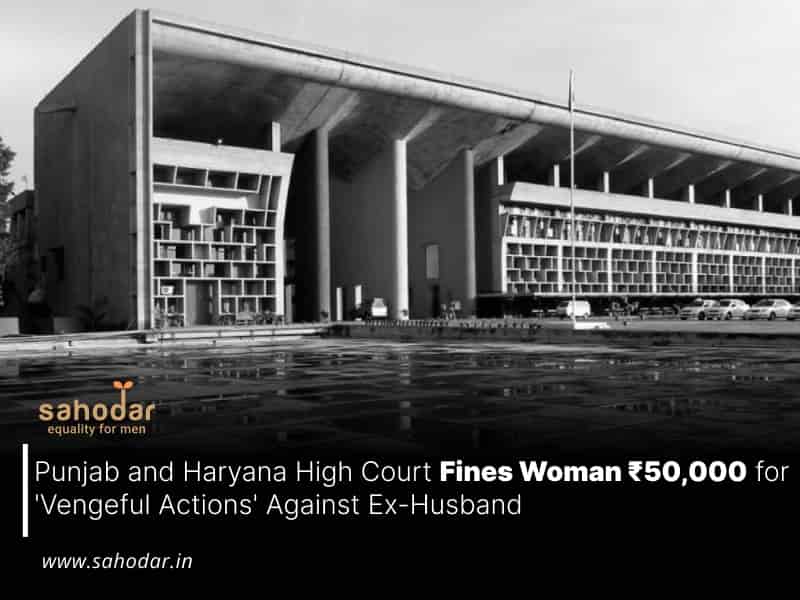The woman had moved courts in different states alleging that the man had cheated her by obtaining the decree of mutual consent divorce through fraud.
The Punjab and Haryana High Court recently fined a woman ₹50,000 for filing a criminal complaint against her ex-husband, claiming he tricked her into a mutual divorce.
Justice Sumeet Goel said the complaint was meant to harass and “get back at” the man since both a family court and the Uttarakhand High Court had already ruled against her.
“The filing of the criminal complaint by the respondent (herein) complainant reflects abuse nay gross abuse of process of law and Courts at her instance on account of the nature of allegations made as also lack of territorial jurisdiction,” the Court said.
It stated that these secretive attempts need to be firmly stopped.
“The respondent (herein) – complainant deserves to be saddled with costs, which ought to be veritable and real time in nature.”
The couple got married in Ludhiana in 2003 and had two children. In September 2014, their marriage was ended by a family court in Roorkee.
Later, the woman claimed that the divorce was obtained through fraud. She tried to get the divorce decree canceled in the family court, but her requests were denied.
She then appealed to the Uttarakhand High Court, but later withdrew her case with the option to explore other legal actions.
In her 2016 complaint to a Punjab court, she accused the man of cheating by getting a mutual consent divorce without paying any permanent alimony. She also claimed that, even after the divorce, he made false promises and had physical relations with her.
In June 2017, the magistrate summoned the man under Section 420 (cheating) of the Indian Penal Code. This led to the current case in the High Court.
The Court first looked at whether the summoning order was properly issued according to Section 202(1) of the Code of Criminal Procedure (CrPC).
The provision requires the magistrate to delay issuing a process against the accused if they live outside the court’s jurisdiction and first conduct an inquiry or direct an investigation to determine if there is enough evidence to proceed with the case.
Justice Goel commented on this matter, saying…
“In a criminal complaint, in case there are multiple accused sought to be summoned, the mandatory provision of Section 202(1) of Cr.P.C. will be required to be adhered to even if one of such accused is reflected to be residing outside the area jurisdiction of such Magistrate.”
The Court found that all the accused named in the complaint filed in Ludhiana live in Haridwar and Dehradun. It noted that the summoning order didn’t follow the required procedures and questioned how the magistrate decided that the offense occurred in Ludhiana.
Regarding the case itself, the Court pointed out that two attempts to cancel the divorce decree had been denied by the family court, and the appeal to the Uttarakhand High Court was withdrawn.
“The liberty reserved in favour of the respondent – complainant by the Hon’ble Uttarakhand High Court to take recourse in law (if advised) can, by no stretch of legal imagination, be construed as granting permission to file the impugned criminal complaint,” it said.
The Court concluded that this was an abuse of legal process and dismissed both the complaint and the summoning order, along with all related proceedings.
“The respondent (herein) – complainant is saddled with costs Rs.50,000/- which shall be deposited by her with trial Court within eight weeks from today,” the order stated.
Advocate PK Dwivedi represented the petitioner.
Advocates GBS Gill and Shilesh Gupta represented the complainant.

